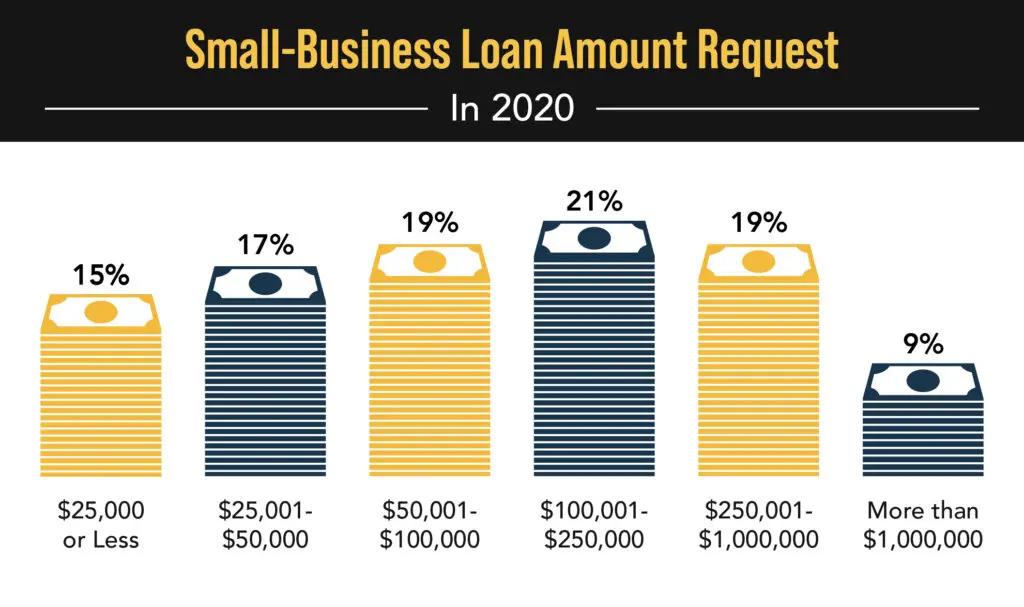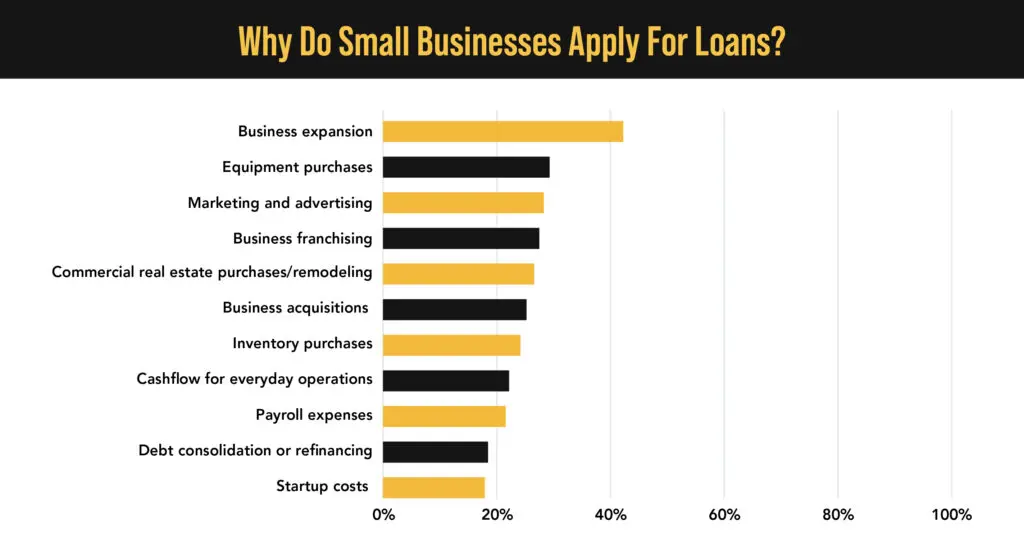In today’s rapidly evolving market landscape, businesses in the retail and manufacturing sectors face a relentless push to scale operations, integrate cutting-edge technology, and optimize warehouse management. As consumer demand continues to grow and evolve, the ability to adapt and expand quickly becomes a significant competitive advantage. However, achieving these goals often requires substantial capital investment, which can be challenging for small and medium-sized enterprises (SMEs). This is where small business loans for warehouse expansion and other operational upgrades come into play.
By leveraging private small business loans, companies can access the funds needed to invest in critical areas of their supply chain and operations, driving growth and enhancing efficiency. In this blog, we will explore how small business loans can fuel growth in the retail and manufacturing industries by scaling operations, integrating technology, and optimizing warehouse management.
The Role of Small Business Loans in Scaling Operations
Scaling operations involves expanding the business to accommodate increased demand, entering new markets, or enhancing production capacity. For retail and manufacturing businesses, scaling often requires investment in new equipment, facilities, or technology—investments that can be cost-prohibitive without external funding.
Small business loans, particularly those designed for equipment and operational expansion, provide a vital source of capital for these investments. For example, equipment financing loans allow businesses to purchase or lease new machinery without the upfront costs that could strain cash flow. This type of loan is particularly beneficial for manufacturing companies looking to scale production or retail businesses aiming to expand their inventory management capabilities.
Additionally, many businesses benefit from short term loans for small business. These loans provide the necessary funds to cover immediate expenses, such as purchasing additional inventory to meet seasonal demand or hiring temporary staff during peak periods. With the ability to access quick cash, businesses can avoid missing out on growth opportunities due to a lack of working capital.
Case Study: A Retailer’s Journey to Scale
Consider a mid-sized retailer planning to open several new stores in high-demand locations. To achieve this, they need to secure additional inventory, hire staff, and invest in marketing—all of which require significant capital. By obtaining fast small business loans, the retailer can quickly access the funds needed to cover these costs without disrupting their day-to-day cash flow. This strategy allows them to scale operations efficiently, seize new market opportunities, and maintain a competitive edge.
Technology Integration: The Future of Operational Efficiency
In today’s digital age, integrating advanced technology into supply chain operations is no longer a luxury—it’s a necessity. From automating routine tasks to utilizing data analytics for demand forecasting, technology integration offers numerous benefits that can transform a business’s efficiency and responsiveness.
However, integrating new technology often requires significant upfront investment, which can be a barrier for many small businesses. This is where small business loans for technology upgrades become invaluable. With the right financing, businesses can invest in advanced software systems, automation tools, and IoT devices that streamline operations and reduce costs.
For example, a manufacturer might use online small business loans to invest in an AI-driven inventory management system. Such a system could predict demand more accurately, reduce waste, and optimize stock levels, leading to significant cost savings over time. Similarly, a retailer could leverage working capital loans to integrate a state-of-the-art point-of-sale (POS) system that improves customer experience and provides valuable insights into purchasing behavior.

The Impact of Technology on Warehouse Management
Warehouse management is a critical component of both retail and manufacturing supply chains. Efficient warehouse operations ensure that products are stored, handled, and dispatched in a way that minimizes costs and maximizes customer satisfaction. Technology integration plays a pivotal role in optimizing these operations.
For instance, investing in a warehouse management system (WMS) can automate inventory tracking, optimize storage space, and streamline order fulfillment processes. However, the initial cost of implementing such a system can be daunting for many businesses. Small business loans for warehouse expansion and technology integration can provide the necessary capital to invest in these advanced systems without disrupting cash flow.
By securing a small business loan program tailored for technology upgrades, companies can integrate a WMS that enhances operational efficiency, reduces errors, and improves overall warehouse performance. This investment not only boosts productivity but also positions the business to handle increased demand effectively, supporting long-term growth.
Optimizing Warehouse Management for Growth
Warehouse optimization is a critical strategy for businesses looking to improve efficiency and reduce costs. For retail and manufacturing companies, warehouse management is often a significant expense, with costs associated with storage, handling, and distribution. By optimizing these processes, businesses can achieve substantial cost savings and improve their bottom line.
Small business loans for warehouse expansion offer a strategic solution for companies looking to optimize their warehouse operations. These loans can be used to finance a range of improvements, from expanding storage capacity to implementing automated sorting systems. By investing in these enhancements, businesses can increase efficiency, reduce errors, and improve order accuracy, all of which contribute to better customer satisfaction and retention.
Real-World Application: A Manufacturing Company’s Expansion
Consider a manufacturing company experiencing rapid growth in demand for its products. To keep up with orders, the company needs to expand its warehouse capacity and improve its inventory management processes. However, the cost of building a new warehouse or expanding an existing one is substantial. By securing a small business loan in Florida, the company can finance the construction of a new warehouse facility, complete with advanced storage systems and automation technology.

The loan allows the company to spread the cost of the expansion over time, reducing the immediate financial burden. As a result, the company can increase its storage capacity, improve order fulfillment times, and reduce inventory carrying costs—all of which contribute to better profitability and growth.
Leveraging Small Business Loans for Strategic Growth
The strategic use of small business loans can be a game-changer for companies in the retail and manufacturing sectors. By providing the necessary capital to invest in scaling operations, integrating technology, and optimizing warehouse management, these loans enable businesses to achieve their growth objectives more effectively.
Small business loan providers offer a variety of financing options tailored to the specific needs of different industries. Whether a business requires short term business funding to cover immediate expenses or long-term loans for significant capital investments, there is a loan product available to meet those needs.
Choosing the Right Loan for Your Business
Selecting the right small business loan is a critical decision that can significantly impact your business’s ability to grow and thrive. With various loan options available, it’s essential to thoroughly evaluate each one and determine which best aligns with your specific business goals, financial situation, and operational needs. Understanding the nuances of different types of loans can help you make an informed decision that supports your strategic growth objectives. Here are some of the most common types of small business loans and their specific uses:
1. Working Capital Business Loans
Working capital business loans are designed to help businesses manage their day-to-day operational expenses. These loans are ideal for businesses that need to maintain steady cash flow to cover routine costs such as payroll, rent, utilities, and inventory purchases. Unlike loans that are intended for specific purposes, working capital loans offer greater flexibility, allowing businesses to use the funds as needed to support ongoing operations.
Working capital loans are especially beneficial for businesses that experience seasonal fluctuations in revenue or those facing short-term financial challenges. For example, a retailer preparing for a busy holiday season might use a working capital loan to purchase additional inventory, ensuring they can meet customer demand without depleting their cash reserves. Similarly, a manufacturer might use the loan to cover operational costs while waiting for payments from customers.
2. Equipment Financing Loans
Equipment financing loans are specifically designed to help businesses purchase or lease new equipment. This type of loan is ideal for businesses that rely heavily on machinery, technology, or other equipment to operate effectively. For instance, a construction company might use equipment financing to acquire new heavy machinery, while a medical practice might use it to purchase advanced diagnostic tools.
Equipment financing loans offer several advantages. First, they often come with favorable terms because the equipment itself serves as collateral, reducing the lender’s risk. This means businesses can secure lower interest rates compared to unsecured loans. Additionally, the loan structure is typically aligned with the useful life of the equipment, ensuring that businesses are not paying for obsolete equipment long after it has been retired.

For businesses looking to expand their operations, investing in new equipment can lead to increased productivity and efficiency. However, the high upfront cost of equipment can be a barrier. Equipment financing loans help overcome this challenge by spreading the cost over time, allowing businesses to invest in growth without straining their cash flow.
3. Short Term Small Business Loans
Short term small business loans provide businesses with quick access to cash to address immediate financial needs. These loans are typically repaid within a few months to a year, making them an excellent option for businesses that require immediate funding for short-term projects or emergencies. For example, a business might use a short-term loan to cover unexpected expenses, such as a critical equipment repair or an urgent bulk inventory purchase.
The primary advantage of short-term loans is their speed. Because these loans are designed to be repaid quickly, the application and approval processes are often streamlined, allowing businesses to access funds within days. This quick turnaround can be crucial for businesses facing time-sensitive financial needs.
However, it’s important to note that short-term loans often come with higher interest rates compared to long-term financing options. Businesses should carefully consider their ability to repay the loan within the short repayment period to avoid additional financial strain. When used strategically, short-term loans can provide a valuable financial lifeline, enabling businesses to seize opportunities or navigate unexpected challenges.
4. Construction Business Financing
Construction business financing is tailored specifically for businesses in the construction industry. These loans are typically used to finance the building of new facilities, expansion of existing structures, or purchase of land for development. Given the high costs associated with construction projects, securing the right type of financing is crucial for businesses looking to expand their physical footprint.
Construction business financing can take several forms, including traditional term loans, lines of credit, or specialized construction loans that disburse funds in stages as the project progresses. This staged disbursement approach aligns with the phases of construction, ensuring that businesses have the necessary funds at each stage of the project while minimizing interest costs.
For example, a manufacturing company looking to expand its production capacity might use construction business financing to build a new facility equipped with the latest technology and equipment. Similarly, a retail business might use this type of loan to open new stores in strategic locations, enhancing its market presence and customer reach.
5. Medical Practice Financing
Medical practice financing is a specialized loan designed for healthcare professionals looking to expand or upgrade their practices. This type of financing is tailored to the unique needs of medical practitioners, offering flexible terms and competitive interest rates. Medical practice financing can be used for a variety of purposes, including purchasing new equipment, renovating facilities, expanding office space, or acquiring another practice.
For example, a dentist might use medical practice financing to invest in state-of-the-art dental equipment that improves patient care and enhances operational efficiency. Similarly, a general practitioner might use the loan to expand their practice by adding new examination rooms or upgrading their existing facilities.
6. Small Business Construction Loans
Small business construction loans are specifically designed for businesses looking to construct new facilities or renovate existing ones. These loans are suitable for a wide range of industries, including retail, manufacturing, healthcare, and more. With the right construction loan, businesses can fund their projects without depleting their working capital, allowing them to maintain smooth operations while pursuing growth.
Construction loans are typically structured to provide funds in stages as the construction project progresses. This staged funding approach ensures that businesses have access to the necessary capital at each phase of the project while minimizing interest costs. Additionally, construction loans often come with longer repayment terms, making them a viable option for businesses looking to invest in long-term growth.
7. Startup Business Equipment Financing
Startup business equipment financing is a loan specifically designed for new businesses that need to invest in equipment to get started. This type of financing is crucial for startups that require significant equipment investments but lack the capital to make these purchases outright. By securing equipment financing, startups can acquire the necessary tools and machinery to launch their operations without exhausting their cash reserves.
Startup equipment financing loans are often structured with favorable terms, as the equipment itself serves as collateral. This collateral reduces the lender’s risk, allowing them to offer competitive interest rates and flexible repayment terms. For example, a new restaurant might use equipment financing to purchase kitchen appliances, while a tech startup might use the loan to invest in servers and computers.
The Benefits of Private Small Business Loans for Industry Growth
Private small business loans offer several advantages over traditional bank loans, making them an attractive option for businesses looking to invest in growth. Some of the key benefits include:
- Flexibility: Private loans often come with more flexible terms and conditions, allowing businesses to tailor the loan to their specific needs.
- Speed: Private lenders typically offer faster approval and disbursement processes, enabling businesses to access the funds they need more quickly.
- Accessibility: Private loans are often more accessible to businesses with less established credit histories, providing an important source of capital for newer or smaller companies.
- Customization: Private lenders often offer a range of loan products designed for specific industries or needs, such as small business loans for warehouse expansion, equipment financing for small business, ormedical practice business loans.
By choosing a private small business loan, businesses can access the capital they need to invest in growth while maintaining the flexibility and control needed to manage their operations effectively.
Empowering Growth Through Strategic Financing
Small business loans play a crucial role in empowering growth in the retail and manufacturing industries. By providing the necessary capital to scale operations, integrate new technologies, and optimize warehouse management, these loans enable businesses to achieve their strategic objectives and stay competitive in today’s dynamic market environment.
Ready to take your business to the next level? Explore the wide range of small business loan programs available today and find the right financing solution for your growth needs with VIP Capital Funding. From online small business loans to fast equipment financing, there’s a loan product out there that’s perfect for your business. Don’t wait—start exploring your options today and empower your business to thrive in the competitive marketplace. Get in touch today.


